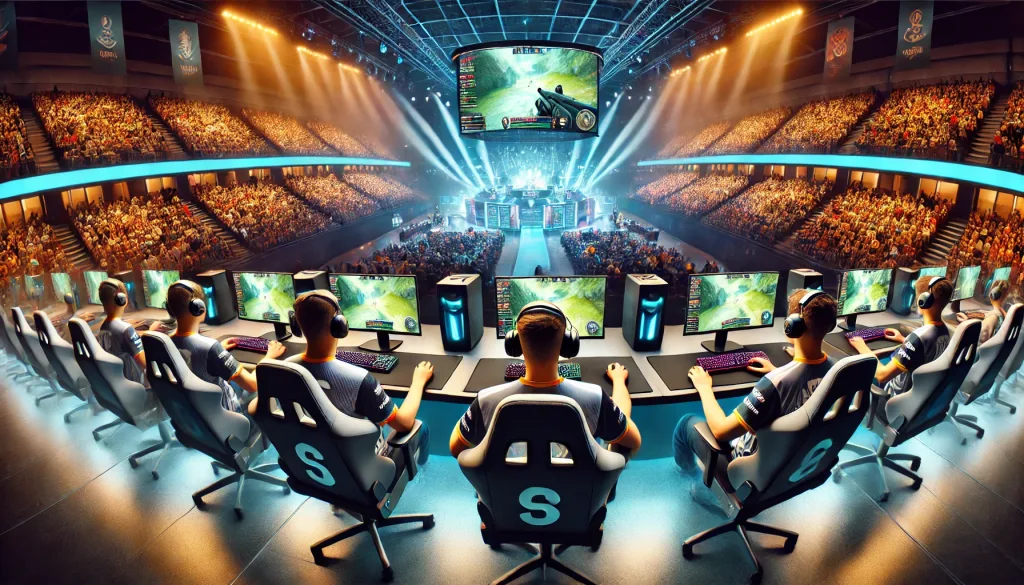Earning Money from Online Games: From Streaming to Esports

The modern world of online gaming provides unique opportunities for earning money. Many gamers have already turned their hobbies into a source of stable income. With the growth of platforms and technologies, the gaming industry offers a variety of ways to monetise skills, creativity, and passion. In this article, we will explore the main ways to earn money through online games, from streaming to professional esports. Whether you’re a casual player or a dedicated gamer, there’s a chance to turn your hobby into a viable income stream.
Streaming: Broadcasting Your Gameplay
Streaming has become one of the most popular ways to earn in the gaming industry. It allows players to showcase their skills, connect with audiences, and earn through various monetisation methods. The demand for gaming content has surged in recent years, making it a lucrative opportunity for those who are consistent and engaging. Many gamers broadcast their gameplay on platforms like Twitch, YouTube Gaming, or Facebook Gaming. Streaming not only enables income generation but also helps build a personal brand and loyal community.
What makes streaming particularly attractive is its accessibility. All you need to start is a reliable internet connection, decent gaming equipment, and a personality that resonates with viewers. Over time, successful streamers attract sponsorships, partnerships, and collaboration opportunities. Furthermore, gaming events and marathons organised by streamers can drive significant engagement and donations, making it an exciting avenue for earning and interacting with fans.
Key Platforms for Streaming
Twitch is the leader among streaming platforms. It offers numerous tools for streamers, including the Twitch Partner Program, which allows streamers to earn revenue from subscriptions and advertising. YouTube Gaming provides a similar monetisation model but focuses more on long-form content and premieres, catering to a slightly different audience. Facebook Gaming is another contender in this space, leveraging its integration with the social network to attract casual and professional gamers alike. Each platform has its unique features, enabling streamers to choose the one that aligns best with their goals.
Esports: Competing at the Highest Level
Esports refers to professional tournaments in online games that attract millions of viewers worldwide. This competitive industry offers immense financial and career opportunities for skilled players. With games like Dota 2, League of Legends, and Counter-Strike: Global Offensive dominating the scene, esports has transformed gaming into a spectator sport and an international phenomenon. The prize pools for tournaments often reach millions of dollars, making it one of the most lucrative forms of gaming-related income.
However, succeeding in esports requires more than just gaming skills. It demands dedication, discipline, and the ability to work in a team. Players spend countless hours practising, strategising, and learning game mechanics to stay ahead of the competition. Beyond financial rewards, esports also provides fame and recognition for top players, who often become brand ambassadors or influencers in the gaming community.
How to Become a Professional Esports Player
To become an esports player, one needs to specialise in a single game, participate in local competitions, and build a reputation in the gaming community. Joining a professional team is a significant milestone, as it opens doors to larger tournaments and sponsorships. It is also crucial to invest in quality gaming gear, ensure a stable internet connection, and keep up-to-date with the latest updates and strategies for the chosen game. The journey to professional esports may be challenging, but the rewards—both financial and personal—can be substantial.

Selling Gaming Accounts and Items
Another popular way to earn money is by selling accounts and in-game items. Many games, such as World of Warcraft, Counter-Strike, and Fortnite, allow players to buy and sell skins, weapons, or entire accounts on specialised marketplaces. This method appeals to gamers who are skilled at acquiring rare items or building high-level accounts that are in demand among other players.
The value of gaming accounts and items often depends on their rarity, functionality, or aesthetic appeal. For instance, unique skins in Counter-Strike or powerful weapons in RPGs can fetch significant prices. Many players see this as an opportunity to turn their gaming expertise into profit, especially if they excel in collecting exclusive content or mastering in-game economies.
Legal Aspects of Selling
Before starting trading, it is important to familiarise yourself with the game’s rules, as some platforms prohibit selling accounts. Violating these rules can lead to account bans or penalties. Using verified platforms for trading and adhering to game policies helps ensure secure transactions and protects both buyers and sellers. Transparency and credibility are key to building a successful and sustainable trading business in the gaming industry.
